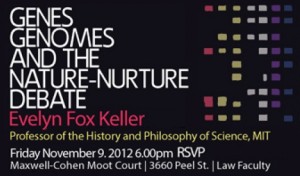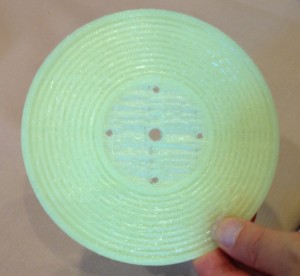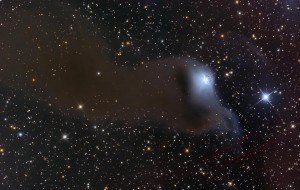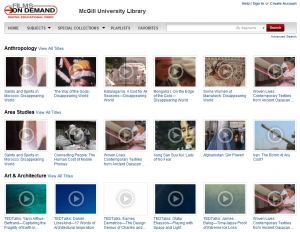The Mo ssman Endowment presents the following Elizabeth B. McNab Lecture in the History of Science:
ssman Endowment presents the following Elizabeth B. McNab Lecture in the History of Science:
Genes, Genomes and the Nature-Nurture Debate
with Evelyn Fox Keller, Professor of History and Science, MIT
Date: Friday, November 9th, 2012
Time: 6:00 p.m.
Location: Maxwell-Cohen Moot Court, 3660 Peel
RSVP: e-mail rsvp.libraries@mcgill.ca or call 514-398-4681
Description:
Evelyn Fox Keller is concerned with the unreasonable persistence of the Nature/Nurture debate, and she argues that, in good part, that persistence derives from the fundamental uncertainty surrounding the subject of debate. What exactly is the question we are trying to answer? What do we mean by “nature”? And what effect does the changing discourse of genes and genomes have on this debate?
Speaker biography:
Evelyn Fox Keller is Professor Emerita of the history of science at MIT. Trained in both theoretical physics and molecular biology (PhD, Harvard, 1963), she has been a leading figure in the history and philosophy of modern genetics, and in the study of gender in science. Her major works include: A Feeling for the Organism (1983); Reflections on Gender and Science (1985); The Century of the Gene (2000); Making Sense of Life (2002); and The Mirage of a Space Between Nature and Nurture (2010). She has received many academic awards in recognition of her work, among them a MacArthur foundation fellowship.
Check our catalogue for the location and availability of Professor Keller’s major works in the McGill Library.
Click here for information about the Mossman Endowment and the Mossman Collection on the History of Science and of Ideas.
Lecture announcement and image from the McGill Library website








